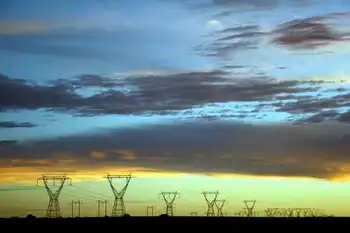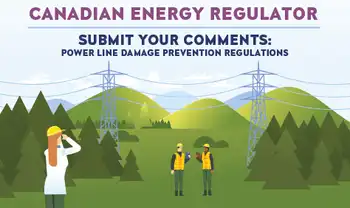Used nuclear energy could be on its way here
Harper will face questions from both Australian Prime Minister John Howard and U.S. President George W. Bush over Canada's participation in a sweeping American-led initiative still in its infancy.
The initiative, called the Global Nuclear Energy Partnership, proposes that nuclear energy-using countries and uranium-exporting countries band together in a new nuclear club to promote and safeguard the industry.
Central to the plan is a proposal that all used nuclear fuel be repatriated to the original uranium exporting country for disposal.
That should be big news in Canada, the world's largest uranium producer. But to date, the Canadian government's response is a closely guarded secret. In fact, there's been virtually no public debate at all.
In Australia, where Harper has an ideological soulmate in Howard, the debate over the plan has raged for more than a year. Australia and Canada are the world's biggest uranium exporters and the policy threatens to become an election issue this fall as opposition parties charge the country is in danger of becoming a "radioactive dump."
Yet Harper's minority Conservative government clearly does not want to engage the Canadian public in discussion about the initiative.
At a briefing before the Pacific meeting, one of the Prime Minister's most senior officials, flanked by his director of communications, Sandra Buckler, carefully skirted a question on the uranium policy. "It doesn't feature on the APEC agenda, per se," said the official. "Whether the initiative has disappeared off the global agenda or the U.S. agenda, I really can't say."
The next day, in response to a separate and unrelated media inquiry, a spokesperson from Foreign Affairs confirmed Canada has been invited to a Sept. 16 meeting in Vienna to discuss the initiative.
The carefully neutral comments stand in contrast to earlier draft "talking points" obtained by The Canadian Press under an Access to Information request. Those heavily censored documents show much greater enthusiasm. "Canada is very interested in examining potential areas for partnership in the Global Nuclear Energy Partnership given that we are the world's largest uranium producer," said one undated talking point from 2006.
The same memo continues: "Canadian officials... have begun discussions with their counterparts in the U.S. to consider possible parameters of Canadian involvement."
Liberal MP David McGuinty, the Opposition environment critic, excoriated the Conservative government for its secrecy. "This is the kind of subterfuge and hidden agenda that the government has on such an important issue," said McGuinty. "We've never had notice of it. There's been no White Paper. There's been no discussion.
"It's time for them to come clean on this."
Related News

Florida says no to $400M in federal solar energy incentives
MIAMI - Florida has passed up on up to $400 million in federal money that would have helped low-income households install solar panels.
A $7 billion grant “competition” to promote clean energy in disadvantaged communities by providing low-income households with access to affordable solar energy was introduced by President Joe Biden earlier this year, but none of that money will reach Florida households.
The Environmental Protection Agency announced the competition in June as part of Biden’s Inflation Reduction Act. However, Florida Gov. Ron DeSantis has decided to pass on the $400 million up for grabs by choosing to opt out of the…





